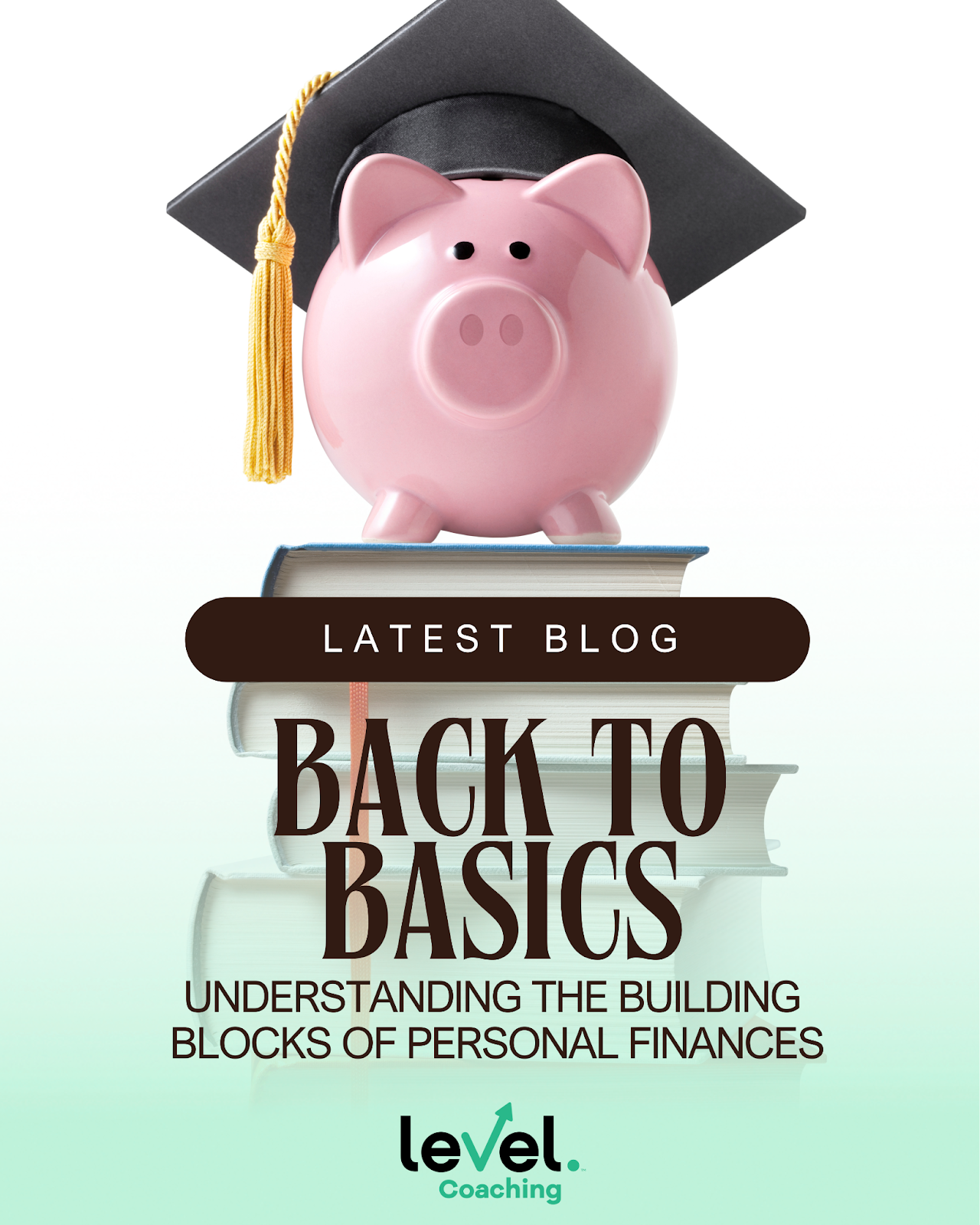
24 Sep Back to the Basics: Understanding the Building Blocks of Personal Finances
Managing money doesn’t have to be complicated. In fact, one of the best ways to take control of your finances is to go back to the basics. When you understand where your money comes from, where it goes, and how to maximize it, you’ll build a stronger foundation for your financial future.
Gross vs. Net vs. Taxable Income
These three terms show up on every paycheck, but many people aren’t 100% sure what they mean. Let’s break it down:
- Gross Income – This is your total pay before anything is taken out. Think of it as the “headline” number on your paycheck.
- Taxable Income – After certain pre-tax deductions (like retirement contributions or health insurance premiums) are subtracted from your gross pay, the remaining amount is your taxable income—the figure the government uses to calculate your taxes.
- Net Income – Often called “take-home pay,” this is what actually lands in your bank account after taxes and deductions.
Knowing these differences matters because your net income is what you actually have to work with for bills, savings, and everyday life.
Understanding Deductions
Deductions are the hidden details that explain why your take-home pay is less than your gross pay. Common deductions include:
- Taxes: Federal, state, and local taxes.
- Social Security & Medicare: Contributions to government programs.
- Insurance Premiums: Health, dental, or vision plans.
- Retirement Contributions: 401(k) or other savings plans.
Tip: Review your pay stub regularly. Understanding your deductions gives you clarity on what’s eating into your paycheck and helps you spot errors or opportunities to adjust your contributions.
Boosting Your Cash Flow
Cash flow—the money moving in and out of your account—is one of the most important things to watch. Even if you’re earning a solid income, poor cash flow management can make it feel like you’re always coming up short.
Tips to Improve Cash Flow:
- Adjust Tax Withholding: Too much withholding means you’re giving the government an interest-free loan. Too little could leave you owing at tax time. Find the balance that works for you.
- Increase Retirement or HSA Contributions: These pre-tax deductions can reduce your taxable income and give long-term benefits.
- Pick Up Extra Income Streams: Even small side hustles can improve your month-to-month breathing room.
- Cut Unnecessary Expenses: Audit your subscriptions, impulse buys, or recurring charges that don’t add real value.
Track What’s Coming In—and Going Out
It’s not just about how much you make. It’s also about where your money goes. Many people are surprised to learn that small daily expenses add up to hundreds—or even thousands—over time.
- Use budgeting apps or spreadsheets to track spending.
- Check your bank statements monthly for hidden or forgotten charges.
- Look at patterns: Are dining out, online shopping, or entertainment costs creeping higher than you realized?
The more awareness you have, the more control you gain.
How a Financial Success Coach (FSC) Helps
Even when you know the basics, putting them into action consistently can be tough. That’s where working with a Financial Success Coach can make all the difference.
Benefits of Having an FSC:
- Provides accountability to stick with your financial goals.
- Helps you spot patterns in spending and income that you might miss.
- Guides you on smart adjustments to improve your cash flow.
- Keeps you focused on long-term stability—not just short-term fixes.
Final Takeaway
By understanding the basics of income, deductions, and cash flow, you can take control of your financial future. Pair that knowledge with the support of a Financial Success Coach, and you’ll have the confidence and clarity to make smarter money decisions every day.
Written by Nichole Olds,
September 2025

